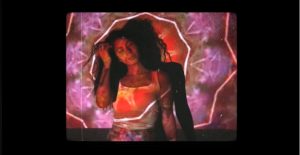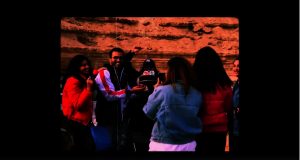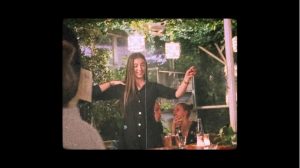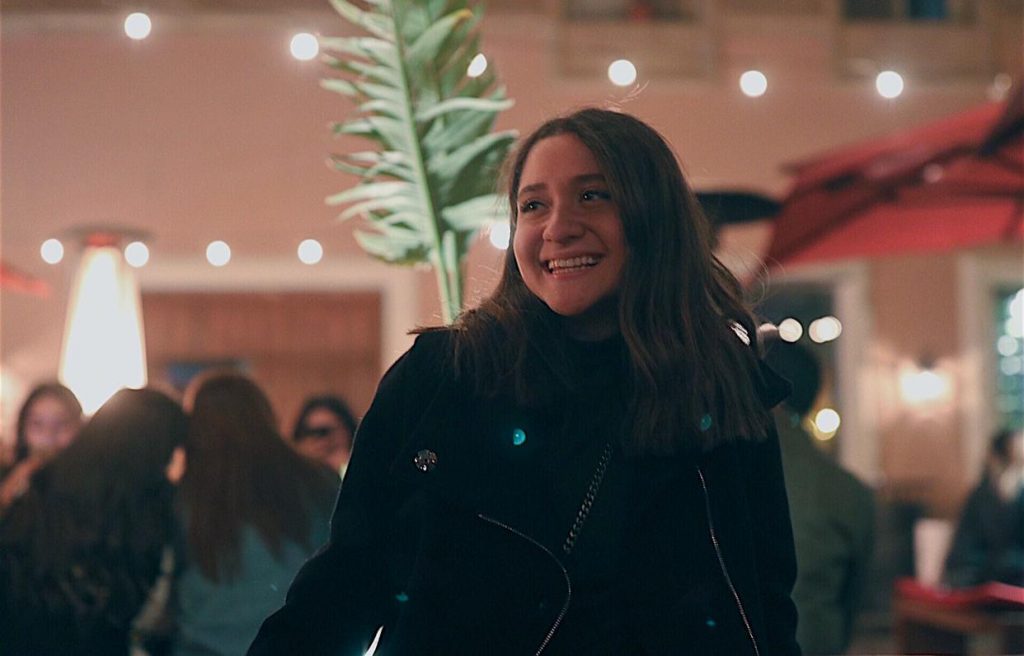São Paulo – A festival of short films up to 2 minutes long is featuring ten African filmmakers’ takes on life during the Covid-19 pandemic and its personal, economic and societal repercussions. The film fest is an initiative of the Africa in Motion Film Festival and the Ladima Foundation, an African NGO which encourages audio visual work by women.
The short films portray the problems facing many African women, in emotional stories that touch on domestic violence, the lack of opportunities, the burden of heightened care, and also on resilience and hope – as is the case with “Being,” by Egypt’s Malak El Araby, which presents a brighter outlook on the situation we are experiencing.
Also featured are films by women from Kenya, Ghana, South Africa and Nigeria. Each filmmaker got EUR 500 and got their work shown in multiple formats.
The films are available on the Africa in Motion website, with Portuguese subtitles supplied by Mostra de Cinemas Africanos (the African Film Festival), a project by Ana Camila Esteves of Brazil designed to broaden the reach and visibility of narratives in Portuguese-speaking countries. The short films are also available at the end of this story.
ANBA interviewed Malak El Araby (pictured at the top of this page) on Being – her second outing. The 21-year-old filmmaker is pursuing a degree in Film from the American University in Cairo, where she lives. The idea for the film occurred to her during the lockdown, which led her to question everything she missed. The intimate film includes pre-pandemic footage of people holding hands, hugging, walking the streets, gathering for birthdays and weddings, and even heading to the mosque to pray.

“During the lockdown, it made me think a lot about everything I missed, like going out with my friends, going to events like weddings and graduations, and simple things like just holding your friend’s hand. It made me realize that all of us, we have little things that we all took for granted, and it was kind of a good thing that the lockdown made me realize all of these things,” El Araby said. She also asked her friends what they missed the most, and they all mentioned everyday things.
“So I came up with the idea of why don’t I make a short film and make people feel the same way I feel about this lockdown. Instead of just taking it as ‘Lockdown and we’re depressed,’ the Covid-19, we can actually turn it into something positive and make people think ‘Oh, at this time we can actually think about all the things we can work on and appreciate more, and when all of this is over we can actually appreciate it more’,” she argued.
She said the film’s purpose is to send out a positive message at a time of limitations. “I just wanted to tell people to appreciate what you have, and you should be grateful for everything.”

Since the lockdown prevented her from hitting the streets, El Araby used footage taken with her phone and camera before the pandemic. “So I said ‘Why don’t I take footage of things I already shot and put them together with the things I wrote, which is the subtitles, and make a short film?’. Because I really wanted to shoot, but I was in lockdown, so I couldn’t just go anywhere and shoot, because we had to stay home. So I just gathered all of my private footage and made it all into a short film,” she recalled.
El Araby appears in some of the scenes, riding in the back of a motorcycle or walking. Additional footage of landscapes and friends and family give off a realistic, intimate vibe, she said.
She edited the film to make it look like images from an old TV set, to convey a memory-like quality to viewers. “But when all of this is over, hopefully it won’t be a memory anymore,” she said.

This is the second film by this passionate filmmaker who often makes travel videos of each country she travels to. “I like to story-tell about cultures and people through the camera,” she said.
But “Being” is very close to her heart. “I was very emotional at the time and this is what I felt exactly, and I wanted people to feel the same way. I was sad at the time and I was pushing through it all and I wanted to be positive about it. I wanted to be positive about it too, so it was hard to do that. But I hope I managed to make people, like, look at it in a positive way. And I was honestly very scared and nervous to show it to the world, but it’s a very good thing, because this is what I wanted to do in the beginning. The Ladima Foundation made this come true, streamed it to the world and show everyone what I wanted everyone to see and to feel. I am very grateful for this opportunity,” she said.
The short film by Malak El Araby begins at 16’45” in the video below.
Translated by Gabriel Pomerancblum




